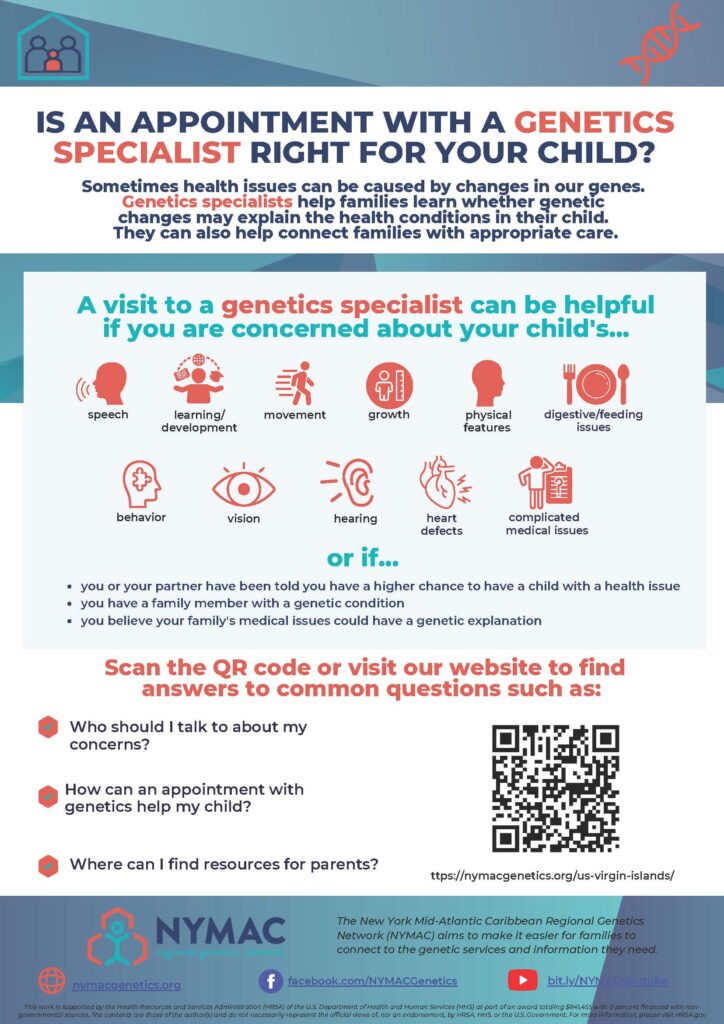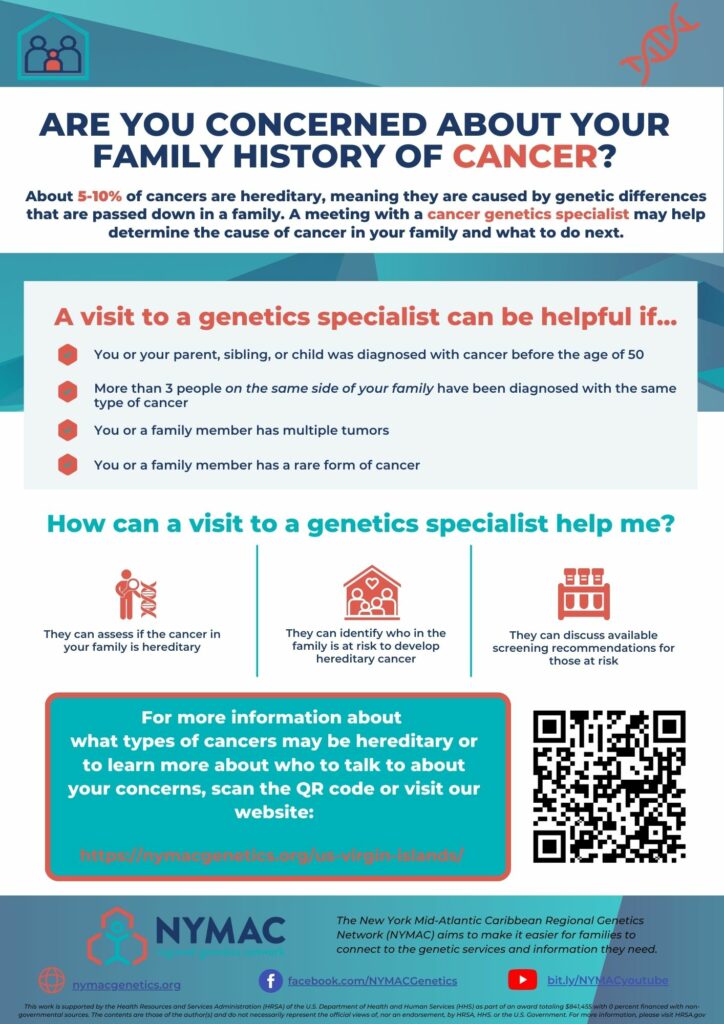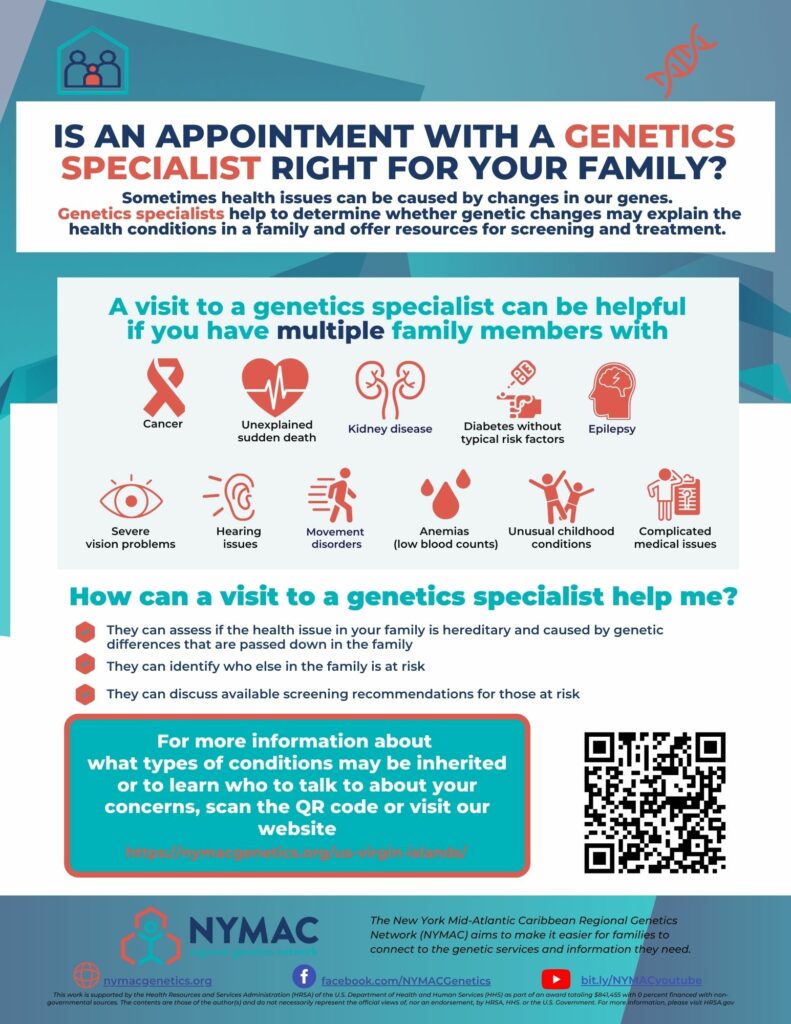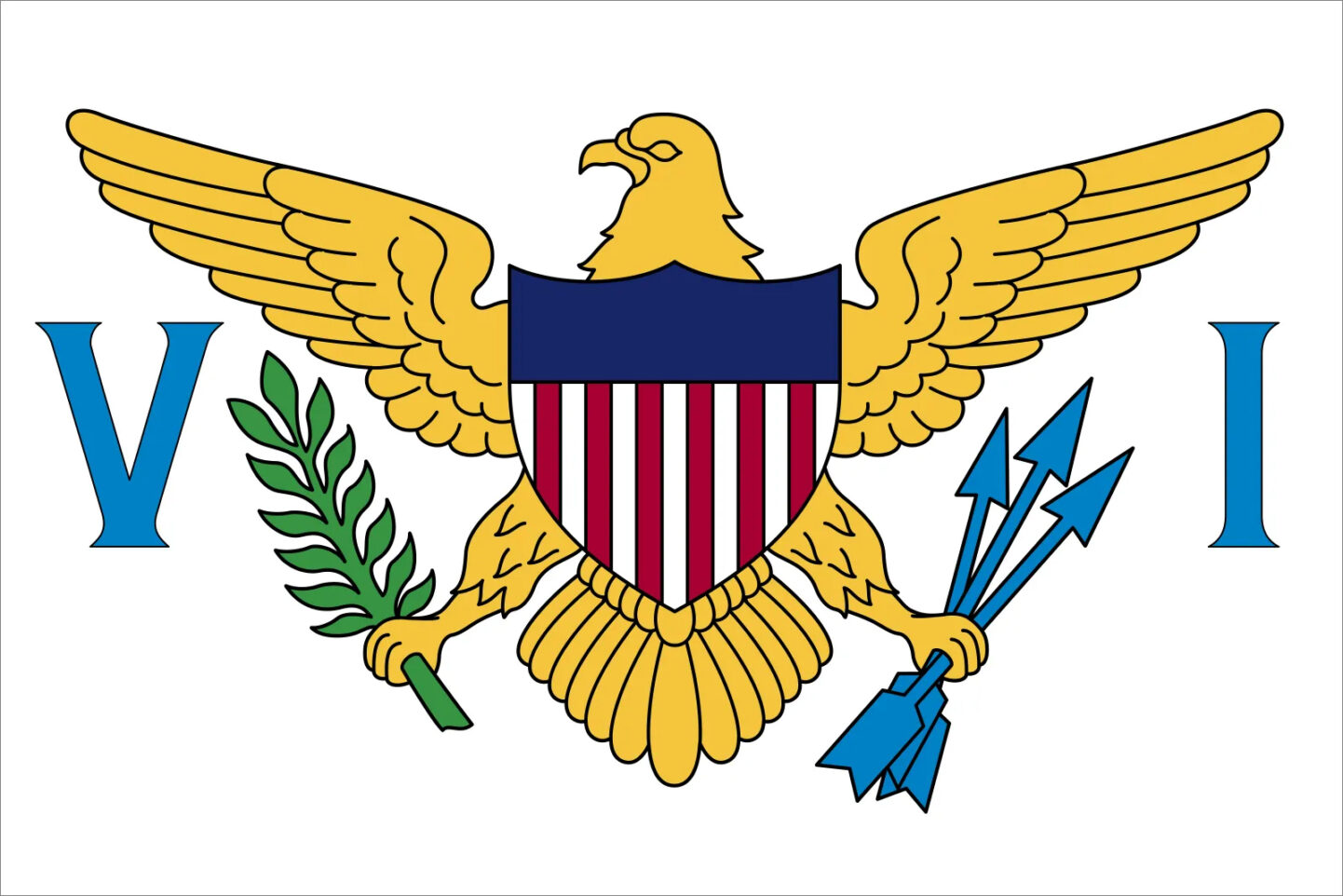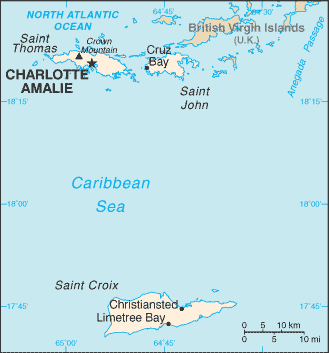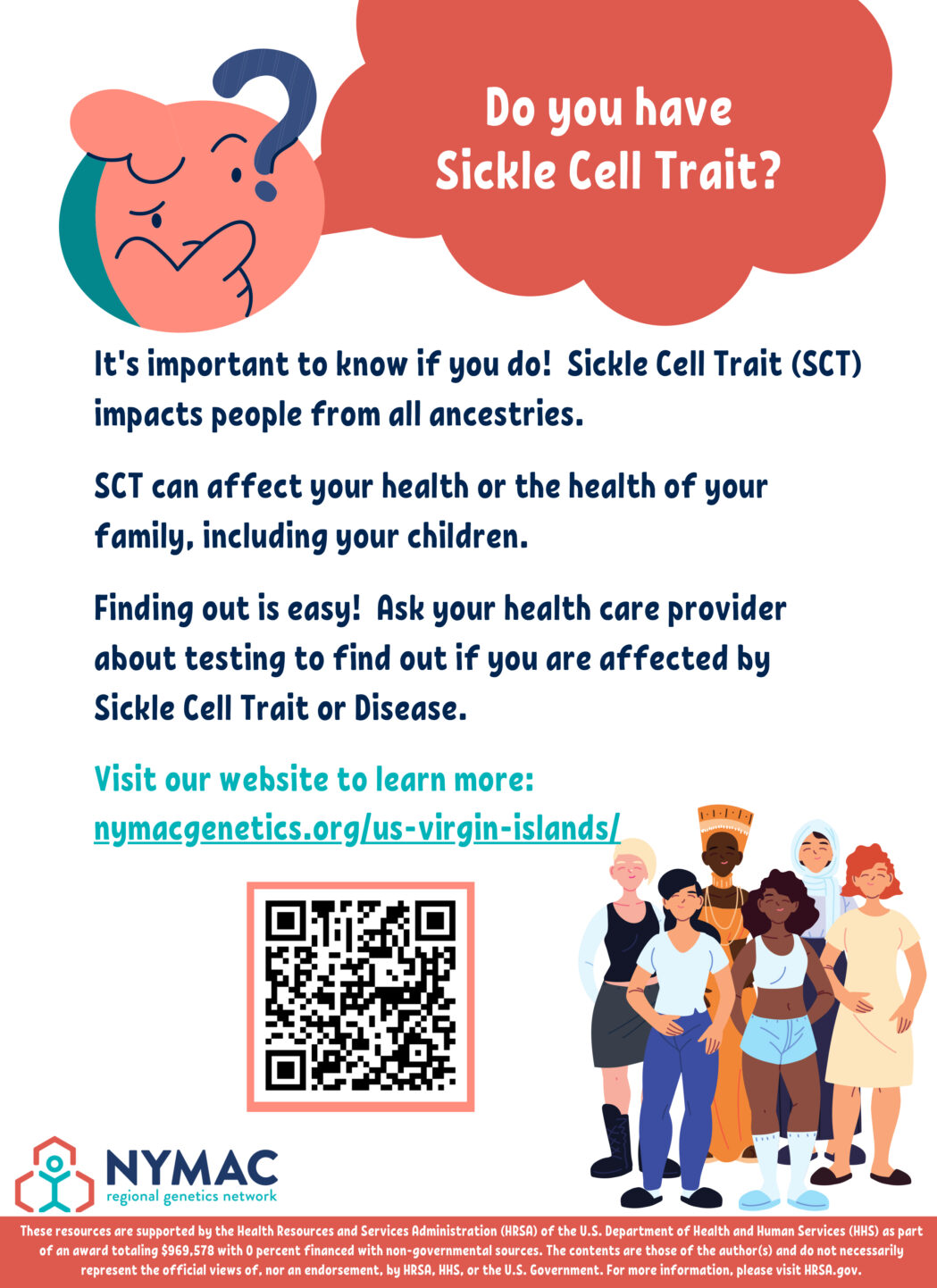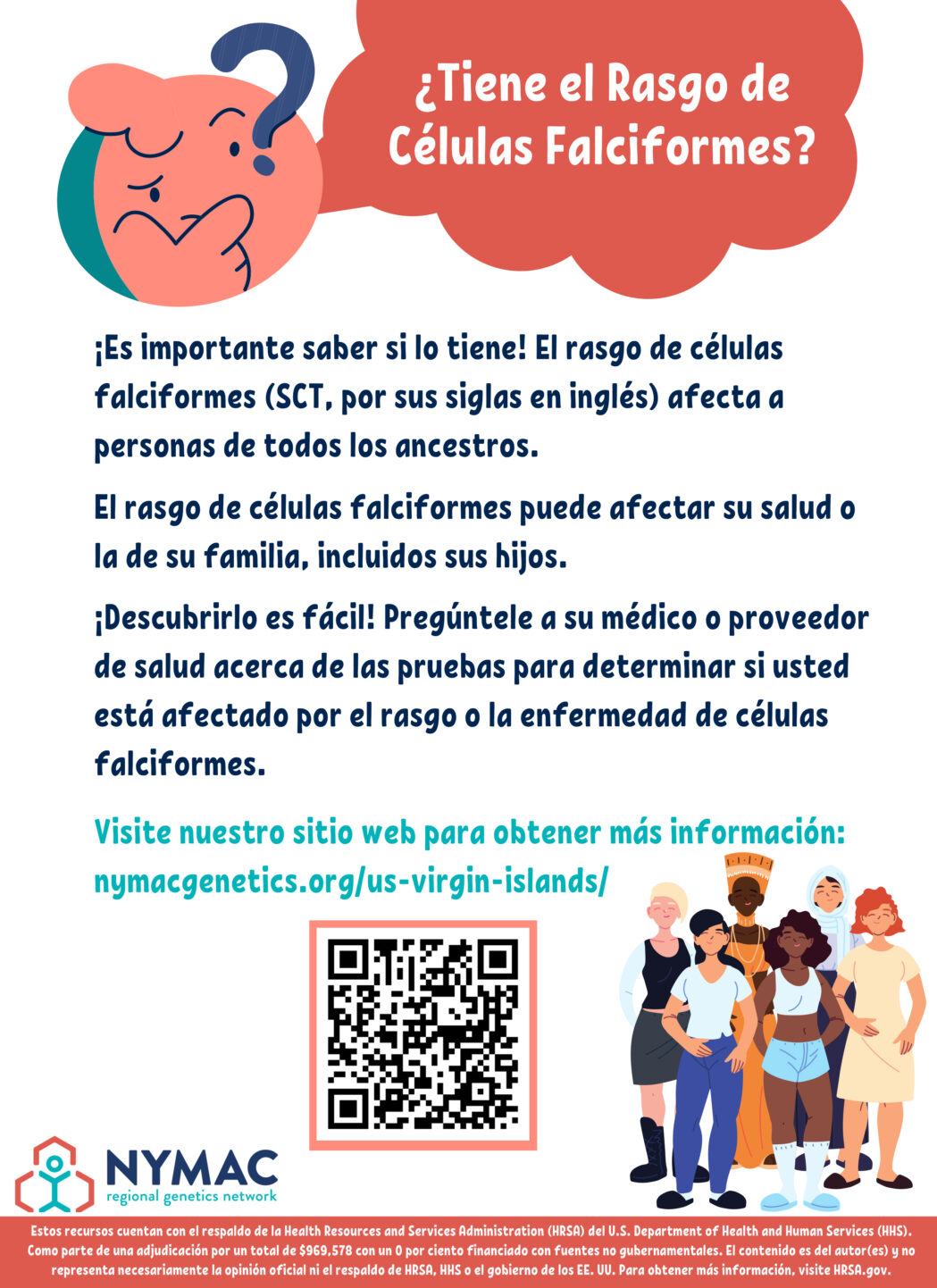The US Virgin Islands (USVI) is a group of islands with a culturally diverse population of about 90,000 US citizens. The territory consists of three main islands: St. Thomas, St. John, and St. Croix, as well as several dozen smaller islands . One of the most common health challenges in USVI is sickle cell anemia and other health conditions related to red blood cell production. In addition to those genetic conditions, there are a number of other special health care needs in the USVI community that can be caused by changes in our genetic information. USVI also has a territory-run Newborn Screening (NBS) program, as do all US states and territories. The USVI program screens for over 30 genetic conditions, including Sickle Cell Anemia. Health care providers help families learn whether genetic changes may explain the health conditions in their family and connect families to appropriate care. There are currently no genetics clinics on the island but below are some resources to help you learn more and have conversations with your local doctors and nurses.
Resources for Children and Families with Genetic Conditions in USVI:
ExpectingHealth: Expecting Health works collectively with organizations, healthcare professionals, people, and communities to provide the right information at the right time – from planning a pregnancy to early infant care. Here are some helpful resources: ExpectingHealth.org
- Navigate Newborn Screening Resource Toolkit
- Navigate Newborn Screening Prenatal Flipbook
- Out of range newborn screening video
- New Navigate NBS Video Education Series
USVI Department of Health (DOH): The USVI DOH is an agency of the government of USVI responsible for public health issues. It works to support and improve the health and safety of all USVI citizens through disease prevention, access to care, quality management, and community engagement. United States Virgin Islands Department of Health (doh.vi.gov)
Newborn Screening: USVI screens newborn infants for conditions that can cause serious illness, developmental delays, and even death if not detected in the first few weeks of life. Newborn Screening (babysfirsttest.org)
USVI Infants and Toddlers Program: The Virgin Island Infants and Toddlers Program (ITP) is a territory wide, family-centered, multi-disciplinary system of early intervention services for infants and toddlers from birth through two years of age who have disabilities or developmental delays. United States Virgin Islands Infants and Toddlers Program (doh.vi.gov)
USVI Department of Humans Services: This office administers the Division of Disabilities, Vocational and Rehabilitation Services that provide programs to assist individuals with disabilities, physical or mental impairments that constitute or result in substantial impediment(s) to employment, by providing those services which will help them to achieve an employment outcome. United States Virgin Islands Department of Humans Services (dhs.giv.vi)
Virgin Islands Developmental Disabilities Council, Inc. (VIDDC): Promotes and supports Virgin Islanders with developmental and intellectual disabilities in their communities through advocacy, capacity building and system change. Virgin Islands Developmental Disabilities Council, Inc. (viddc.org)
Maternal and Child Health/Children with Special Health Care Needs (MCH/CSHCN) programs assist the Virgin Islands in maintaining and strengthening its efforts to improve the health of all mothers, infants, and children, including children with special health care needs. Maternal and Child Health/Children with Special Health Care Needs (doh.vi.gov)
USVI Medicare and Medicaid: The Virgin Islands State Health Insurance Assistance Program (VI SHIP) is the Virgin Islands local Medicare source, which is locally administered by the Office of the Lieutenant Governor and federally funded by the Centers for Medicare and Medicaid Services (CMS). Medicaid is health care assistance that helps people with low incomes and limited resources to obtain medical care for some or all of their bills. Medicaid also helps to pay for nursing home care. Medicaid programs differ from state to state. In the U.S. Virgin Islands, Medicaid is called the Medical Assistance Program (MAP). The Department of Human Services Bureau of Health Insurance and Medical Assistance is the division responsible for administering Medicaid in the Virgin Islands. United States Virgin Islands Medicare and Medicaid (ltg.gov.vi)
Resources for Providers
WEBINAR: Act Early-Genetic Contributions to the Developmental Journey
This is a Webinar for Early Childhood Professionals Presented by NYMAC In Collaboration with University of the Virgin Islands.

